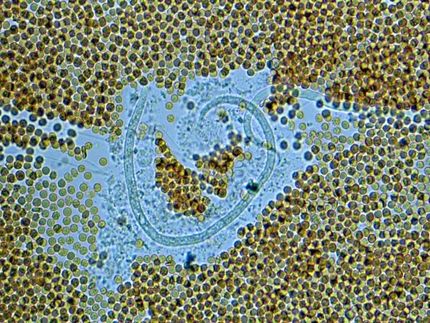Not-so-sweet potato from Clemson University, USDA resists pests, disease
Scientists from Clemson University and the USDA Agricultural Research Service have developed a new variety of not-so-sweet potato, called Liberty.
Known as a boniato, or tropical sweet potato, Liberty has a dark red skin and light yellow, dry flesh with a bland flavor. Boniato potatoes originated in the tropical Americas and are grown in south Florida in the United States. They can be served fried, mashed or in soup.
"We developed Liberty because other boniato varieties are susceptible to damage by nematodes (microscopic parasitic worms)," said John Mueller, plant pathologist and director of Clemson's Edisto Research and Education Center in Blackville.
Mueller worked with a team of scientists from the U.S. Vegetable Laboratory in Charleston led by entomologist Mike Jackson. Other USDA Agricultural Research Service team members included agronomist Howard Harrison, plant pathologist Judy Thies and plant geneticist Janice Bohac.
The Liberty potato is highly resistant to nematodes and moderately resistant to insect pests and fusarium wilt, a fungal disease. Liberty potatoes have good baking quality, store well and do not darken after peeling as most boniato potatoes do. Home gardeners, as well as commercial producers and organic growers, can grow the Liberty potato.
Most read news
Other news from the department science

Get the life science industry in your inbox
By submitting this form you agree that LUMITOS AG will send you the newsletter(s) selected above by email. Your data will not be passed on to third parties. Your data will be stored and processed in accordance with our data protection regulations. LUMITOS may contact you by email for the purpose of advertising or market and opinion surveys. You can revoke your consent at any time without giving reasons to LUMITOS AG, Ernst-Augustin-Str. 2, 12489 Berlin, Germany or by e-mail at revoke@lumitos.com with effect for the future. In addition, each email contains a link to unsubscribe from the corresponding newsletter.


















































